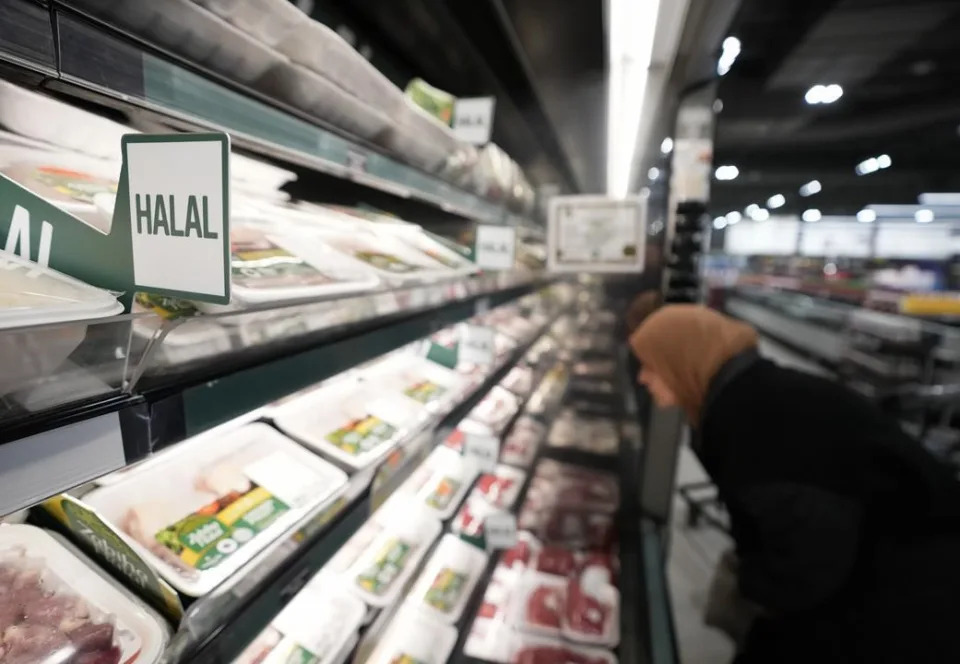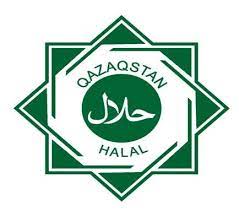By Norshazlina Nor’azman
 ASTANA, June 29 (Bernama) — The halal food industry in Kazakhstan has seen swift growth over the past decade, fuelled by growing awareness among its Muslim community on the importance of consuming food prepared in compliance with Islamic laws.
ASTANA, June 29 (Bernama) — The halal food industry in Kazakhstan has seen swift growth over the past decade, fuelled by growing awareness among its Muslim community on the importance of consuming food prepared in compliance with Islamic laws.
While halal restaurants and cafes were scarce in the capital city of Astana 10 years ago, many have sprung up in recent years.
Certain supermarket chains have also started retailing various types of meat, such as horse meat, beef, mutton and camel meat, as well as sausages and poultry, that depict the halal logo.
RISING DEMAND
Kazakhstan Halal Industry Association (AHIK) chairman Marat Sarsenbayev said in the past 10 years, the consumption of halal food in the country had grown in tandem with the increase in the Muslim population, while there was also a noticeable rise in demand for such foodstuff from among non-Muslims.
He said the association was set up in 2005 following the higher demand for halal food in the country.
“Prior to 2005, the halal aspect was overlooked but now we are aggressively developing our country’s halal food industry.
“Every year, we are seeing more halal food outlets being established… in fact, now 30 percent of the meat available in the market is halal. Even non-Muslims are buying halal products in this country,” he said.
The number of halal food enterprises in Kazakhstan has grown by leaps and bounds – from only a paltry eight such businesses in 2005, the number swelled to 587 in 2012.
It also has a total of 130 slaughterhouses that conform to halal standards.
“This shows that there’s good potential for the market for halal food, and we want our business community to tap into this,” he told Bernama in aninterview.
WORKING CLOSELY WITH MALAYSIA
Sarsenbayev said Kazakhstan has adopted Malaysia’s high halal standards and using the halal logo that was issued by the Department of Islamic Development Malaysia (JAKIM).
“We are working closely with Malaysia, especially JAKIM, SIRIM Berhad, Halal Industry Development Corporation (HDC) and other related government agencies. They have been helpful in assisting AHIK in the development of a halal food certification system.
“Malaysia is the best global example, where the implementation of halal standards and certification are concerned. We are using Malaysia’s standards for our halal enterprises while the halal logo that we use is similar to JAKIM’s,” he said.
He said AHIK has also obtained the approval of SIRIM to implement the eleven standard certifications issued by the agency, such as MS 1500:2009, to spur the development of the country’s halal industry.
For any product or premises in Kazakhstan to receive halal certification, it has to go through various screening processes first. AHIK also conducts periodical audits to ensure that hygiene standards and other prerequisites are fulfilled.
“Presently, the meat and poultry slaughterhouses operate in accordance with halal standards, but we are planning to do online monitoring of the premises.
“We also have a laboratory with advance technology that can conduct express tests to detect food products that are tainted with pork deoxyribonucleic acid (DNA) or alchohol,” said Sarsenbayev.
OPPORTUNITIES IN HALAL INDUSTRY
Meanwhile, Kazakhstan’s Minister of Foreign Affairs, Erlan Idrissov, invited Malaysian entrepreneurs to grab the opportunities available in his country’s halal industry in view of its huge potential.
“We need halal expertise for our agricultural sector, as there’s great demand for all kinds of halal products,” he said.
Malaysian Ambassador to Kazakhstan Datuk Hidayat Abdul Hamid also urged Malaysian entrepreneurs to tap the business opportunities available in the country, especially in the halal market.
The entrepreneurs should also grab the franchise business opportunities by introducing Malaysian brands to Kazakhstan, he said.
“Malaysia has discussed many times with Kazakhstan on helping them to develop their halal food sector as it has good potential, in view of the increasing awareness from the public.
“Malaysia also has lots of high-quality homegrown franchise companies, especially in the food sector, which can penetrate into Kazakhstan as not many franchises from Asia are found there,” he added.



